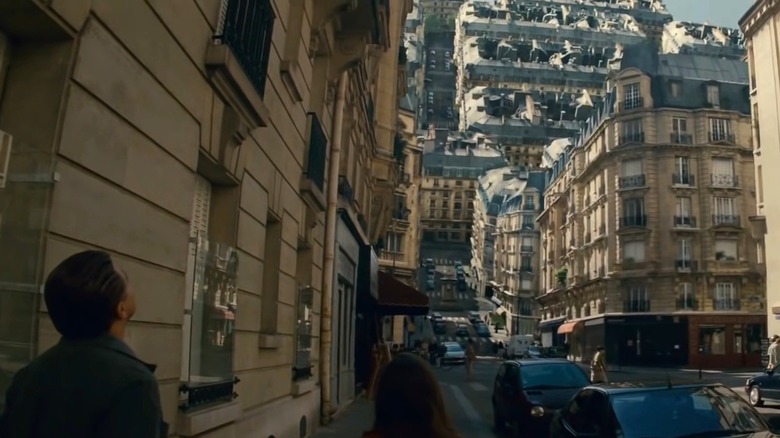Christopher Nolan Thinks It's OK To Be Confused By His Movies - Here's Why
Throughout his career, Christopher Nolan has earned a reputation as one of the most confusing directors in all of cinema, producing a slew of mind-boggling films that twist conventional narrative structure and often deal with high-concept science fiction.
Nolan first showed off his talent for convoluted moviemaking in his breakthrough feature "Memento," which infamously plays out in reverse and begins at the end of the story. Nolan continued this fascination with the unconventional in films like "Inception" (a good portion of which takes place inside of dreams that are inside of other dreams) and "Interstellar," which centers around time dilation, wormholes, and the nonlinear nature of time. Although some viewers might walk out of Nolan's movies wondering what on earth they just watched, Nolan himself actually seems to enjoy the confusion he causes in the audience, claiming his films are meant to convey a sense of mystery, not understanding.
"Don't try to understand it, just feel it," Nolan quipped during an interview with Hugo Décrypte. "I think it's really about mystery ... it should be about mystery. You don't want to understand the entire story right at the beginning. Otherwise, there's nothing to unfold." Nolan went on to describe his belief that it's the filmmaker's responsibility to guide the audience through that mystery without providing too much clarity at once, since being spoon-fed information can also be frustrating.
Nolan says that television has trained the audience to expect linear storylines
While the complex nature of Christopher Nolan's filmmaking might genuinely frustrate some people, these comments make it clear Nolan believes mystery is something to strive for when crafting a story — and that a skillful filmmaker will be able to bring the audience along for the journey while always staying one step ahead.
Though Nolan has a genuine fondness for experimental storytelling, it's worth mentioning that he also understands the disdain some viewers feel towards his densely packed narratives. "Our expectations of films, really ... since the 1950s, they've been informed by television and the expectations of television," Nolan said during the previously mentioned interview. "Television sort of imposes a more linear, more simple approach, because of the way in which we watched television from the 1950s onward."
Nolan explained that the popularity of DVD and streaming services allowed him to tackle more "adventurous" narrative structures because now the audience could rewind and pause the film to analyze it. Admittedly, Nolan was crafting extremely complicated narratives long before streaming rose in popularity, though it's obvious he finds even more opportunities for experimentation now that it has become so popular. Regardless of how you feel about Christopher Nolan's confusing storytelling style, it's clear the director has a deep affection for complex narrative structure, and the "mystery" said structure can convey to the audience.

